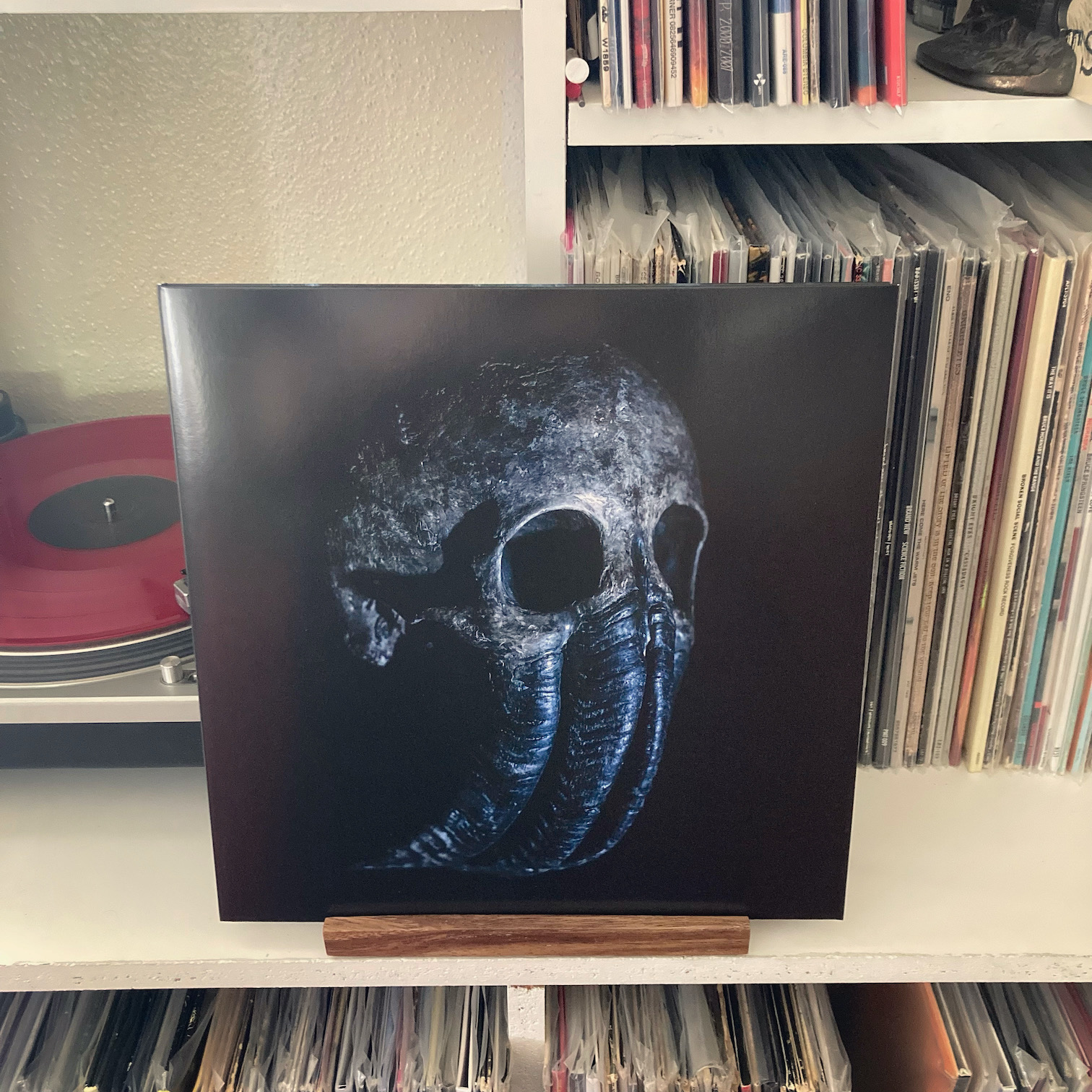
There’s been no shortage of “Pandemic Records.” Whole hosts of artists have attempted to put our shared angst to tape, and if I’m honest, I’m starting to grow weary of it—and I’m even in the process of recording one myself.
But when it comes to Plague God, the devastating debut from post/sludge/industrial metal supergroup Absent In Body, diving back into the darkest parts of the last two years isn’t just tolerable—it feels essential. The collective trauma of the Covid pandemic—and all the political and spiritual upheaval that ran adjacent to it—is a heavy weight to bear, but Absent In Body seems tailor-made for the task. It’s as radical as it is reverent, using crushing heaviness, dark atmospheres, and delicate passages as a canvas for a portrait of mourning and celebration, grief and hope, devotion and doubt.
Even on paper, it sounds heavy. The project is comprised of members of Amenra, Neurosis, and Sepultra—all heavy legends sonically, but they’re no strangers to emotional heaviness either. Amenra’s De Doorn in particular was birthed out of a public works project marking the centennial of World War I, mourning the lives lost from their village and first performed on a nearby battleground. On Plague God, Colin H. van Eeckhout applies the same magnifying glass to the decade thus far. The band describes its goal to “seek out what’s truly human” in “an era overrun by information, misinformation, unseen algorithms, and viral contagion,” and for my money, they hit the bullseye.
Lyrically, it swings between extremes of light and dark, feeling the full measure of them. Their mortality is at the forefront, death as present to them now as decades from now. In “Rise From Ruins,” CHVE screams, “for what it’s worth, dying from birth, what is my worth? My time here on earth?” In “The Acres/The Ache,” he wrestles with the isolation of pandemic: “I long and belong and I miss being missed. How your absence filled the world.” In “Spirit of Spite,” he delivers a spoken-word missive in a moment of rare quietness, saying “we all carry inside us the seeds of our own death. We will not give in to threat. You conquered like cancer.”
Sonically, it’s just as devastating. The band swings between dissonant chaos and subdued ambience without losing a degree of their menace. “The Half Rising Man” is perhaps the best example, opening with a brooding clean guitar that’s joined by a dark whirling synth before the full band combusts. “The Acres/The Ache” offers a moment of levity, the blistering dissonance of its first half receding to a major key post rock chorus with clean vocals offering up a prayer: “I long for a place where thе children don’t cry / Everyone is still and time passes by.”
Surely, there’s value in escapism. In the darkest parts of the pandemic, it was an indelible survival method. But on Plague God, Absent In Body shows that there is something healing about staring unflinchingly into the eyes of tragedy. It is cathartic in the truest sense, proving that there is something therapeutic about screaming into the void—or at least blasting a record that does.